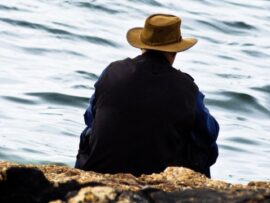When a person is afflicted with tzora’as, his life turns upside down. Aside from the physical affliction on his skin, he is quarantined: he must leave his home and stay on the outskirts of town. There he stays alone; no one may come in contact with him. He must warn people who wish to come close to him that he’s impure, so they’ll keep their distance. He must remain in seclusion until the Kohen checks him and determines that the tzora’as has gone away.
Why must he sit in relative solitude – away from his beloved family and friends? Tzora’as isn’t contagious, so why must move away from people?
Rashi explains that this person is receiving a taste of his own medicine. One is afflicted with tzora’as as a punishment for speaking lashon hara, negative words about others. This type of idle gossip has the power to tear relationships apart, and turn fast friends into sworn enemies.
One who uses negative language thus harms the social lives of others. He must therefore sequester himself from society to help him better understand the hurtful effects of his negative speech.
On the other hand, this period of seclusion can also have a positive effect. It can help a person focus on changing his behavior for the better. Removed from the distractions of his usual environment, he is forced to think about his own life and how he can improve his character.
The power of speech is perhaps the strongest weapon in the human arsenal. Simple words, such as a cheerful “hello” or“good morning,” for example, can be very uplifting. The flipside is the destructive power of speaking ill of someone or embarrassing him in public.
It is up to us to harness the power of speech. Let us utilize it properly, to uplift others, so we can bring happiness and unity to those around us.

